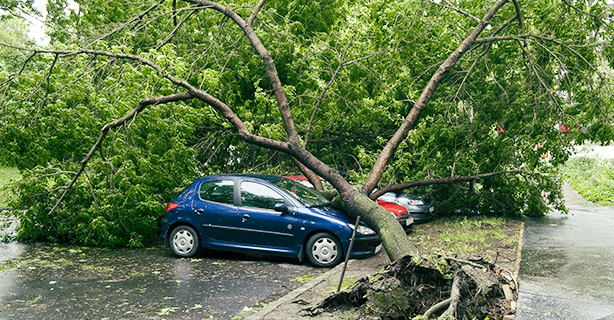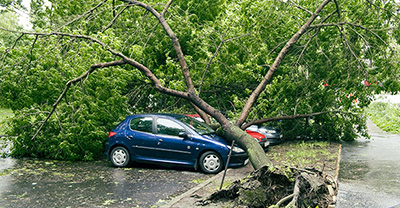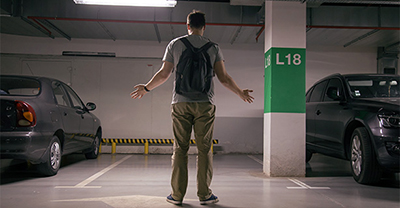What is comprehensive insurance and what does it cover?


0 min. read
What is comprehensive insurance?
Comprehensive insurance helps cover damage to your vehicle from incidents unrelated to a collision or accident with another vehicle or stationary object. For example, damage to your car caused by weather, animals, or theft.
It's important to understand what comprehensive insurance covers so you're aware of all your auto insurance coverage options. Including comprehensive coverage in your auto policy helps pay for repairs to your vehicle when incidents happen that aren't collision-related and are outside of your control.
What does comprehensive insurance cover?
Comprehensive insurance helps cover your vehicle if something happens that you had no control over. Examples include:
Fire
Vandalism
Theft
Falling objects
Natural disasters
Damage caused by animals (such as hitting a deer)
What comprehensive insurance doesn't cover
Medical expenses: Comprehensive coverage doesn't include payments for medical expenses that occur because of an accident. Your liability insurance will help cover medical costs for a driver who's involved in an accident you caused.
Collision damages: Any accident or collision that happens to your vehicle or someone else's vehicle should be covered by either collision or liability insurance, not by comprehensive. In fact, comprehensive insurance is sometimes referred to as "other than collision" insurance.
Is comprehensive insurance required?
While most states require some level of liability insurance, comprehensive isn't mandatory. That said, if you lease or finance a vehicle, you may be required to carry physical damage (comprehensive and collision) coverage.
When can I add comprehensive coverage to my policy?
You may be given the option to purchase comprehensive coverage when you purchase your insurance policy, and whenever you renew it. You may also be given the option to add this coverage as a mid-term policy change.
How comprehensive insurance works
Most insurers recommend this type of coverage to help protect you in case an unexpected incident causes damage to your vehicle.
Comprehensive deductible
Your deductible for comprehensive insurance is the amount you pay toward a claim—your insurance provider helps cover the rest. For example, say a tree limb falls on your car and dents the hood.
If you have a $500 deductible and it costs $1,500 to fix the hood of your car, you’ll pay the deductible of $500, and your insurance will cover the remaining $1,000.
Comprehensive Insurance limits
The limit for comprehensive car insurance is the maximum amount your insurance will cover and is typically equal to the value of your vehicle. If your car is worth $10,000, your insurance won't cover you past that amount.
What’s the difference between comprehensive and collision insurance?
Comprehensive and collision coverage are two different types of coverages:
Comprehensive: Helps pay for covered damage caused by something like hitting a deer or someone stealing or vandalizing your car.
Collision: Helps pay for covered damage from an accident where you hit an object like a telephone pole or another vehicle.
Is comprehensive insurance the same as "full coverage"?
Comprehensive insurance isn’t the same as "full coverage" insurance. As a matter of fact, "full coverage" isn’t actually a type of insurance—it’s a term people use to refer to a group of coverages under a policy.
By most definitions, “full coverage" insurance typically includes comprehensive, collision, and liability insurance.

How comprehensive insurance rates are calculated
How much comprehensive car insurance costs for you varies based on many of the same factors used to calculate the cost of your entire auto insurance policy. These factors can include your:
Age
Insurance score (based on credit history information)
Driving record
Vehicle type
Comprehensive insurance claims
There’s a chance your rates may increase after filing a claim. However, the severity of the damage to your vehicle, the cost of the repair, and the state you live in can determine how much your rates will increase, if at all. The more severe the damage, the more likely your rate is to increase.
Is comprehensive insurance worth it?
Comprehensive insurance only covers up to the value of your car. If your car’s older and not worth much, it may not make financial sense to have comprehensive coverage, depending on your deductible.
It’s a good idea to find out the value of your vehicle and contact your insurance provider to see what your comprehensive coverage will cost. That’ll help determine what’s best for you.
If you’re worried about theft or unexpected damage to your vehicle, give us a call and discover how easy it is to add comprehensive coverage to your car insurance policy.

Can comprehensive auto insurance help if I hit a deer?
Damage from hitting an animal represents 13 percent of all comprehensive insurance claims according to Dairyland® auto insurance data, making it one of the most common claims for this type of coverage.
If you live in an area where deer are common, consider adding comprehensive coverage to your auto policy.
The general information in this blog is for informational or entertainment purposes only. View our blog disclaimer.
*Data accuracy is subject to this article's publication date.










